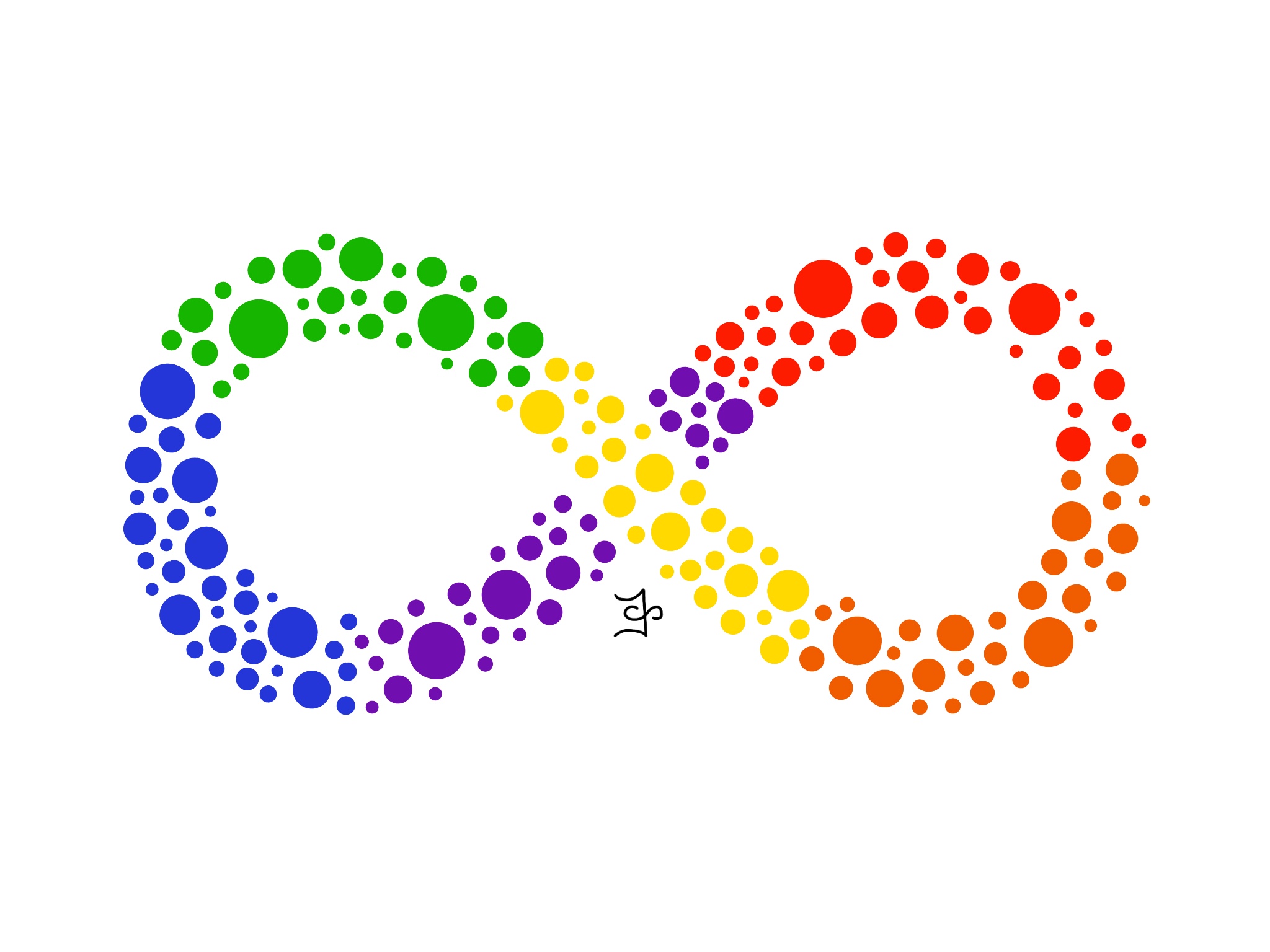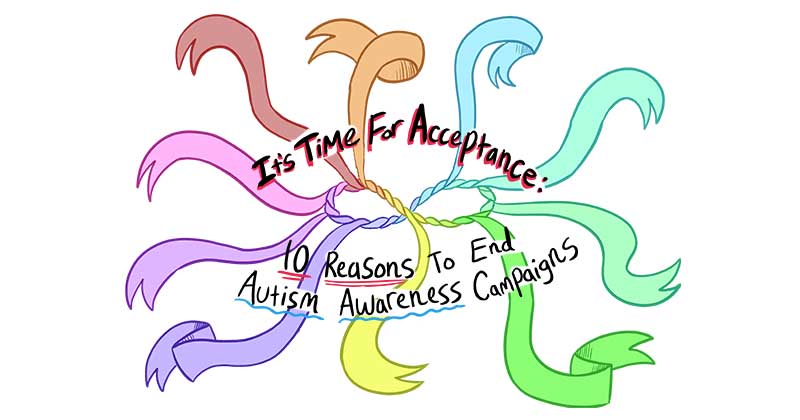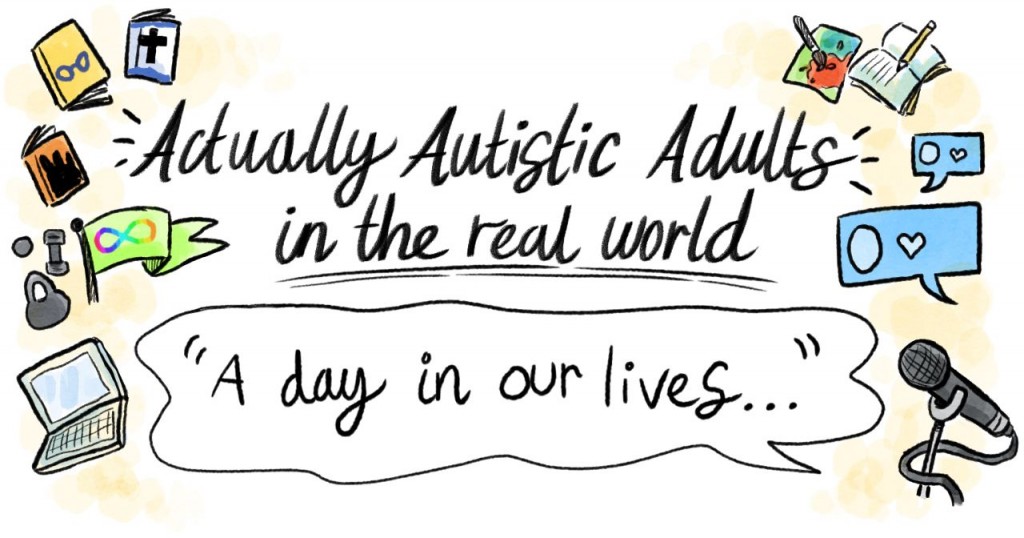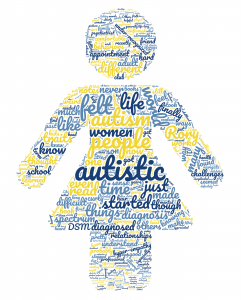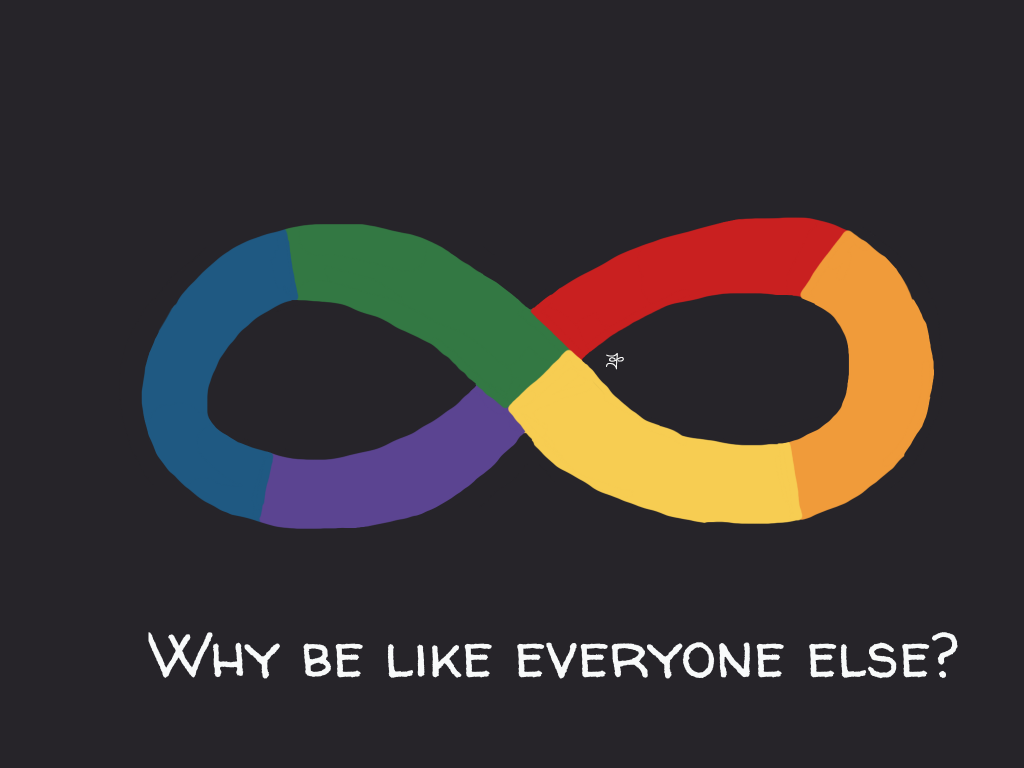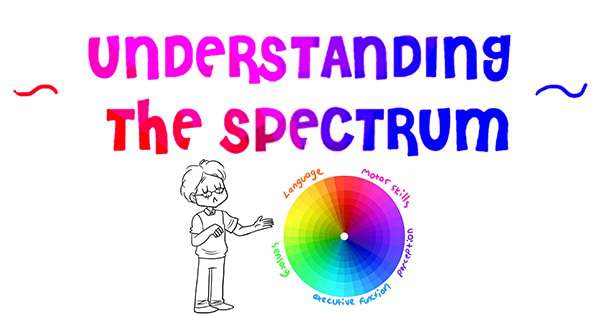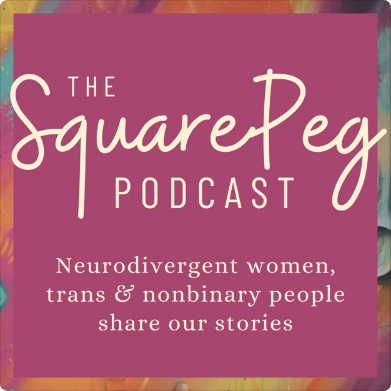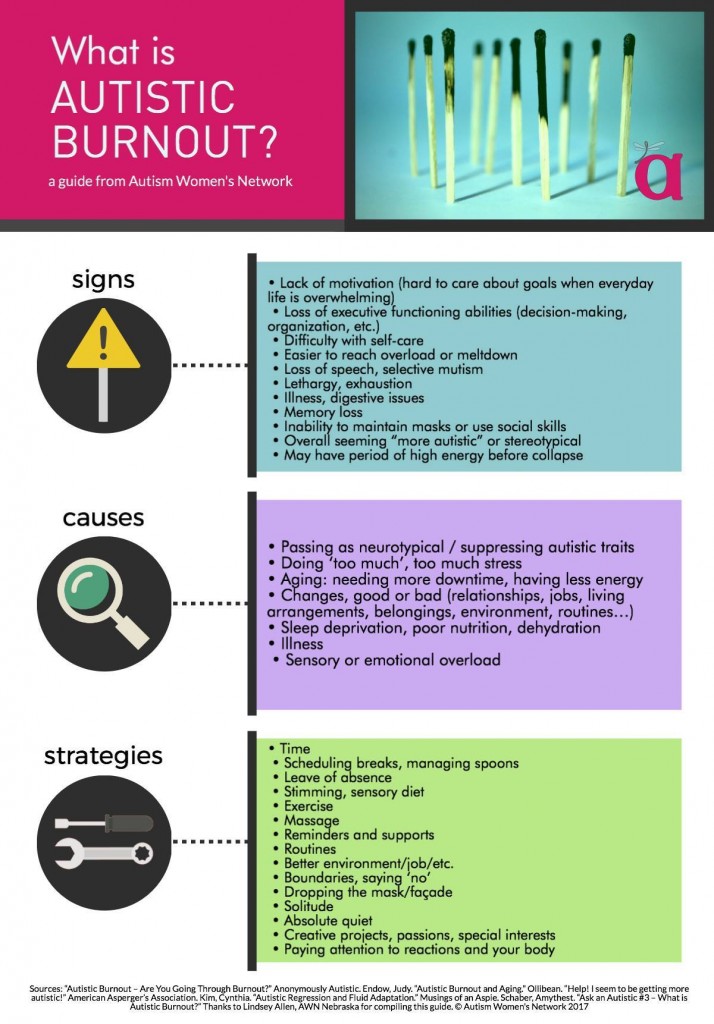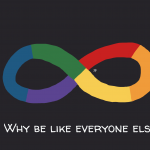So, You Want to Learn About Autism: A Resource List
Note: This post is a work in progress! I’ll be adding to it as time goes on.
I find myself, more and more often, in a position to need to explain to people all things autism and autistic people and ABA and other related things. Rather than repeatedly having to try to remember all of the resources I’ve found most helpful and have heard that others find helpful, I am gathering them all together here, on my own site. This way, I can direct folks to one place to learn about and understand autistic people and autism in general.
It generally shouldn’t be the work of a marginalized group to educate the rest of the world about that group, but how else will the greater world learn the right things in the right ways? They might learn from the wrong sources. They might learn harmful practices from so-called (but horribly misguided) “experts”. In short, it’s important to learn about autism from autistic people, not from non-autistic people. So, to save myself (and others) some of this important work, I’m gathering my best resources together here so people can do their own work to educate themselves.
Many of these links lead to additional articles and links that I have not necessarily looked at, so bear that in mind. I will add to this list as I find new resources and dig into my bookmarks further.
Tl;dr:
- Functioning labels are harmful (“high-functioning”, “low-functioning”).
- Please use identity-first language instead of person-first language unless otherwise requested by the autistic person themselves (say “autistic person” instead of “person with autism”).
- “Nothing about us without us.” Involve autistic people in their own care. Or, rather, autistic people should be in charge of making decisions about their own care. Listen to what they say.
- ABA and any compliance training is abuse. It’s based on gay conversation therapy techniques and both forces autistic people to comply with people who have power over them and teaches them that they aren’t good enough/are broken/aren’t allowed to be their true selves. That being said, there are some caveats.
- The best way to learn about autism is to listen to autistic people and follow autistic people on social media. Look for the hashtag #ActuallyAutistic (do not use this hashtag yourself unless you are autistic). If you have questions for autistic people, use the hashtag #AskingAutistics. Then respect their answers.
- Avoid Autism Speaks; they do not speak for autistic people.
Table of Contents (to come)
Vocabulary About Autism
More links and content to follow. Most people not-in-the-know use the wrong terms and vocabulary with respect to autistic people. I’ll fill in helpful links here as I find them. I’m putting this section near the top because it is the best place to start.
- AA: Actually Autistic
- ABA: Applied Behavioral Analysis (note: stay away from this for your kids)
- ND: Neurodiverse or Neurodivergent
- NT: Neurotypical
- Talk about support needs instead of using functioning labels. Say “high/low support needs” instead of “high/low functioning”.
- Use “autistic person” not “person with autism” because it’s not a disease. Similar to “Deaf person” not “person with deafness”.
- Say “non-speaking”/”minimally-speaking” not “non-verbal.” Puts the emphasis on the facts, and people who are non-speaking or minimally-speaking may express themselves with the written word, using sign language, or through AACs.
- The Autism Spectrum According to Autistic People
- The autistic perspective and social model
- The Lost Generation of Autism (coming)
My Own Writings
It’s Time for Acceptance: 10 Reasons to End Autism Awareness Campaigns
Geek Club Books tasked me with writing an article (illustrated by Rebecca Burgess) about why “awareness” does nothing and “acceptance” is what we need. Here is the full article, and here is the comic version.
—
A Day in the Life… Actually Autistic Adults in the Real World
A series of interviews I’ve done with #ActuallyAutistic adults (and one child) about what their life is like as an autistic person. I even interviewed myself! This was also at Geek Club Books. It is now continued at Spectrum Life Magazine from Autism Empowerment.
—
Landing on the Spectrum: I’ve Always Been Autistic. I Just Didn’t Know It Until Now.
In which I write about how I figured out I was autistic and what I did about it.
—
Landing on the Spectrum, One Year On: How Learning I’m Autistic Has Changed My Life for the Better
In which I write about what my first year of knowing I was autistic was like.
—
Autism Resources That I’ve Found Helpful
Autistic Communication
- Meta-Communication by Autistic People. Dr. Sol on TikTok talks about meta-communication practiced by autistic people. I do this, my partner Rory does this, and I’ve known plenty of other people who do this. I know some autistic people who don’t do this, but this practice requires a bit of vulnerability and openness, and some of the autistic people I know who don’t do this have enough unresolved or unexamined trauma that it may be difficult for them. Again, this is just my theory. I’m no expert.
Programs
- The PINE Program. Great for schools, and hopefully soon clinicians and parents.
- Autism Career Pathways. Supporting autistic individuals in the workplace.
Comics and Webcomics
An older comic put together by Bex Burgess that might be useful.
On Autistic People vs. Allistic People and Their Moral Compass, a webcomic by @newtsoda on Instagram – Spoiler alert: Non-autistic people don’t fare so well.
—
Twitter Hashtags
The autistic community is quite active on Twitter, and a lot of cultural development and education happens there. You can use the hashtags below to find questions, answers, and resources from autistic adults with first-hand, lived experience.
- #ActuallyAutistic – Anyone who posts with this hashtag should be autistic.
- #AskingAutistics – For anyone to ask questions of autistic people. Only autistic people are supposed to answer.
—
Websites and Articles
Overviews
A Beginner’s Guide to Neurodiversity by Suzanne Comberousse
A not-too-long introduction to the concept of neurodiversity, focusing on the social model instead of the medical model.
—
How To Talk About Autism Respectfully by Mykola Bilokonsky
Aimed at journalists, this article is written by an autistic person I greatly respect who has worked very hard to advocate for autistic people and backs up words with action. This is a great place to start, bearing in mind it isn’t complete and there is so much more to say.
Having Autistic Parents When You Are Neurotypical by Neuroclastic
This article does discuss what it’s like to have autistic parents when you’re neurotypical, but it focuses more on how we autistics differ from how we communicate with each other versus how we communicate with neurotypicals. Regardless, it’s a great article and a useful read for those seeking to learn.
Autism in Females
Females and Aspergers: a Checklist
A long but non-exhaustive list by Samantha Craft of autistic traits often found in females. This list helped me identify some of my own autistic traits. (Note: “Asperger’s” is rarely used any longer among most of the autistic community because it’s been lumped in with autism in the DSM and because of the problematic history of its namesake.) Many times, adults, especially adult women, aren’t diagnosed until after one of their children is diagnosed. As they learn more and more about their child’s diagnosis, it sets off light bulbs in their own head. This is what happened to me. Reading through this list might help women discover their own diagnosis earlier.
—
Asperger’s in Women – Life on the Spectrum
Information on autism in adult women.
—
Autism in Teens and Kids
Growing Up Autistic: 10 tips for teenagers with Asperger syndrome or “mild” autism. Tips for teenagers (included despite the problematic vocabulary).
“I Didn’t Have the Words To Tell You” – Mother of Autistic Girl Shares Important Conversation between Daughter and herself. Parents usually want to help, but don’t always know what to look for. By learning some things to consider about your autistic children, parents can be more loving and effective parents.
First Person Autistic Accounts
“No Place for Special Education in Disability” by Cole Sorensen. An autistic adult who struggles to comprehend the attitudes of people studying special education being so hypocritical (my word, not his) about disabled and autistic people.
Adult Diagnosis of Autism
“Discovering Your Autism as an Adult: What to Expect”. This one goes through different kinds of experiences one might have after they’re diagnosed as an adult.
—
Podcasts
Put together by the autistic Magnus Hedemark, this is a so-far limited run but absolutely crucial podcast to listen to for anyone who wants to understand autistic people as they try to navigate this tricky world, including at work. This is not to be missed.
Hosted by Amy Richards, this podcast has a series of guests who are all female, trans, or nonbinary autistic folks. It’s important to hear about lived experience from non-male autistic people, and Amy does a great job hosting.
—
Video
Autism and Neurodiversity: Different Does Not Mean Broken | Adriana White | TEDxPaloAltoCollege
This fabulous and not-too-long talk by Adriana White gives a very helpful, succinct, and digestible introduction to why “weird” and “different” is a good thing, not a bad one.
—
Why ABA (Applied Behavioral Analysis) is Harmful, Traumatic, and Abusive*
I have no experience with ABA or other compliance training, for myself or for my children, but countless autistic people have talked and written about how it was harmful for them and caused them to develop PTSD or other trauma disorders because of it. Here are some links (to come) that are food for thought.
- The Great Big ABA Opposition Resource List
- Why ABA is abusive in three tweets
- ABA is abuse… yes all ABA
Also see Neurodivergent Rebel’s list of resources on ABA below.
*On the other side of the coin, ABA has been helpful for some. Here’s an important article to help us all gain perspective: “Why My Being Patient is a Survival Technique” by Tiffany Hammond, M.A.
—
Masking and Autistic Burnout
Autistic burnout is an umbrella term for the combined symptoms which occur when an autistic person is forced to suppress their needs for too long or too severely. These symptoms can include selective mutism, depression, lethargy, extreme sensitivity, other physical effects, and much more. This chart addresses warning signs, causes, and strategies for dealing with autistic burnout.
Autistic burnout happens when demand exceeds capacity.
Autistic masking is when you have to pretend to be something you’re not just to interact with the world.
- An Autistic Burnout by Kieran Rose. This one is long but should be a required read. TW: Suicide.
- Pete Wharmby has a treasure trove of writing about autism. Here he writes about masking and autistic burnout.
- Autistic burnout/ regression/ inertia – it’s not just me.
- One day they will join us in the sun by Kieran Rose. This essay links to a scientific paper Kieran and his autistic academic friend wrote together about autistic masking. Here is a MetaFilter response.
- #TakeTheMaskOff Week 3: Step Out Of The Lava (Mental Health and Masking). TW: Suicide and suicidal ideation. But this is a good post that uses a lava analogy to help others understand what it’s like to be autistic living in a world built by and for non-autistics.
—
Medical Model vs. Social Model: Autism Isn’t an Epidemic or Disorder
Most autistic adults and advocates with lived experience agree that the current medical model is more harmful than helpful (particularly ABA, but including other “treatments”). These links can help you get a feel for how the autistic community would like to be treated, and what they find helpful. To sum up, the medical model treats autism as something to treat or cure, to force autistic people to be more like their neurotypical peers. Whereas the social model takes the perspective of adding supports in society that help autistic people thrive.
- https://www.linkedin.com/pulse/moving-from-deficit-medical-model-social-humans-marcelle/
- https://www.learningdisabilitytoday.co.uk/a-beginners-guide-to-neurodiversity
- https://www.janinebooth.com/content/autism-social-versus-medical-model
- Autism doesn’t have to be viewed as a disability or disorder
—
Comorbid Mental/Physical Health Issues (anxiety, depression, EDS, epilepsy, insomnia) and Neurodivergences (ADHD, dyspraxia, dyslexia, dyscalculia)
One of the most pressing concerns for adults with autism is misdiagnosis or incomplete evaluations. There are many conditions that are likely to be co-morbid with autism, and these links talk about what those are. In addition, many autistic females are first diagnosed/misdiagnosed with Borderline Personality Disorder.
Various
Anxiety
- https://link.springer.com/article/10.1007/s10803-009-0713-8
- https://link.springer.com/article/10.1007/s10803-014-2248-x (Reading the abstract for this one is a big “duh” for Jenny, as their findings are blatantly obvious to anyone who is autistic, though “treatment interventions” is a very problematic phrase, because if you try to remove this kind of stimming behavior, you’ll leave the person with no/fewer ways to calm themselves)
Suicide Risk (the first several links refer to the same study)
- https://www.psychiatryadvisor.com/home/topics/autism-spectrum-disorders/autism-spectrum-disorder-associated-with-higher-suicide-risk-in-denmark/
- https://www.healio.com/news/primary-care/20210212/teens-young-adults-with-asd-three-times-more-likely-to-attempt-suicide
- https://jamanetwork.com/journals/jamanetworkopen/fullarticle/2774853
- https://jamanetwork.com/journals/jamanetworkopen/fullarticle/2774847
- https://pubmed.ncbi.nlm.nih.gov/24713024/
- https://www.spectrumnews.org/news/autistic-women-twice-as-likely-as-autistic-men-to-attempt-suicide/
—
LGBTQIA+ Overlaps
Another overlap is the intersection of autism and queer identities. According to some resources, most autistic people are not heterosexual, and a large number of them experience gender or body dysphoria (one of the elements of identifying as trans). Even reading the synopses of these papers can help you get a feel for the scope of this overlap.
Autism and Demisexuality
- This is an incredible video about autism and demisexuality. If you’ve ever wondered why you don’t think about sex the way other people do, but you know you aren’t completely asexual, give this a watch.
Other Links
- https://pubmed.ncbi.nlm.nih.gov/29159906/
- https://www.liebertpub.com/doi/abs/10.1089/lgbt.2018.0252?journalCode=lgbt
- https://www.ncbi.nlm.nih.gov/pmc/articles/PMC7430467/
- https://pubmed.ncbi.nlm.nih.gov/28597143/
- https://pubmed.ncbi.nlm.nih.gov/24619651/
- https://pubmed.ncbi.nlm.nih.gov/28914080/
- https://pubmed.ncbi.nlm.nih.gov/27565655/
—
Books
These are books that I or others have found to be helpful.
Aspergirls: Empowering Females with Asperger Syndrome by Rudy Simone. This book was very helpful for me to see bits of my life that reflected my autism. This was before I found Samantha Craft’s list above.
I am AspienWoman: The Unique Characteristics, Traits, and Gifts of Adult Females on the Autism Spectrum by Tania Marshall
Spectrum Women: Walking to the Beat of Autism edited by Barb Cook and Dr. Michelle Garnett, but with a slew of contributing writers
—
Autism-based Magazines
- ZOOM Magazine https://geekclubbooks.com/zoom-autism-magazine/
- Masking Magazine https://issuu.com/maskingmagazine
- Spectrum Life Magazine https://www.spectrumlife.org/
—
Organizations
The Difference Between Good Organizations and Bad
Good Autistic Advocacy Organizations vs. Bad Autism “Charities”
—
Positive Organizations
ASAN, the Autistic Self-Advocacy Network
AWN, the Autistic Women & Nonbinary Network. They have some great welcome packets for the newly diagnosed (and their parents if the diagnosed person is a child).
—
Organizations to Avoid
Autism Speaks
Autism Speaks is the highest profile autism organization and actually causes great harm. Avoid it, please. Run in the other direction as fast as you can.
The Ableist History of Autism Speaks
Is Autism Speaks a Hate Group?
—
Quizzes to Take
Take the results of all of these with a grain of salt, and only see them as part of your whole self-education.
—
Autistic People and Pages Worth Following
- Lauren Ancona: Twitter
- Toni Borneo
- Rebecca (Bex) Burgess: Twitter
- Magnus Hedemark: Twitter, Website
- Christa Holmans, Neurodivergent Rebel (also see their list of resources below): Twitter, Website
- Greta Thunberg: Twitter
- Pete Wharmby: Patreon (including many useful articles for free), Twitter
- Kieran Rose: Twitter
- NeuroClastic: Facebook
—
Additional Academic Papers
Autistic Students’ Experiences
These academic studies examine how the experiences of autistic students compare with that of neurotypical students.
- This one intrigued me greatly, especially this quote from the abstract: “The design of this project positioned participating pupils as experts in their own experiences”
http://shura.shu.ac.uk/23231/
http://shura.shu.ac.uk/23231/1/leatherland_2018_phd_UnderstandingHowAutistic.pdf(note: I haven’t read this, as it’s 672 pages long) - https://pubmed.ncbi.nlm.nih.gov/23901152/
How Autistic Masking Over Time is Harmful
This is an academic paper written by two autistic people about the long-term effects of stigma and masking on autistic people.
Special Interests/Passions
Understanding how and why autistic people relate to certain topics (often called special interests) can help you learn to relate more to autistic people and understand us. But a giant, flashing sign of a note: Using special interests as an incentive or reward is abusive/manipulative, is compliance training, and isn’t appropriate.
—
Famous Autistic People
Temple Grandin
Why Temple Grandin is Not My Hero
—
Resources I Need to Sort, and in some cases vet
Why Functioning Labels Are Harmful
https://autisticmama.com/the-problem-with-autism-functioning-labels/
https://planningacrossthespectrum.com/blog/why-stop-using-functioning-labels/
Important Twitter Threads
https://twitter.com/janetwerther/status/1527672675090546691?s=11&t=3bR5Dj-hBZ7_y5pWdQuxcw
https://twitter.com/egcartisano/status/1551961931380047884?s=11&t=sISSKSxegjNHpj6fme6yxg
On School Refusal: https://twitter.com/naomicfisher/status/1560218145125814273
Important Instagram Threads
A thread about how and why autistic people reject or ignore social hierarchies.
Other
https://theautisticadvocate.com/2020/01/aspergers-syndrome-whats-in-a-name/
How Do I Feel? A Dictionary of Emotions for Children
https://stimpunks.org/contact/
How Listening to Autistic Adults Helped Me Understand and Support My Son
https://www.ncbi.nlm.nih.gov/pmc/articles/PMC6728747/
Public Neurodiversity Support Center
https://amp.theguardian.com/society/2021/dec/16/adults-discovered-autistic-child-diagnosed-autism
New Research Suggests Social Issues are Down to Neurotypicals more than Autistics
https://nasen.org.uk/resources/girls-and-autism-flying-under-radar
https://www.divergentminds.org/a-look-at-autistic-inertia/
https://www.womenofautism.org/
Reframing and understanding positive and negative emotions, a short guide by Dr. Michaela, @myeasytherapy on Instagram
—
Additional Autism Resources
Christa Holmans, Neurodivergent Rebel, has gathered their own list of helpful resources. They’ve gathered a long list of autistic people to follow, and also articles about ABA and how it’s harmful.
Using DBT (instead of ABA) to help autistic people. Because DBT is skills-based instead of compliance-based, it empowers the person to follow a path of self-discovery, understanding, acceptance, and (ultimately) growth. It’s not a perfect tool for everyone, but it can be a powerful tool to those clients who need it.
A list of resources I haven’t yet vetted.
Sensory Seeking/Sensory Avoiding
Synesthesia
https://thereader.mitpress.mit.edu/a-brief-200-year-history-of-synesthesia/

